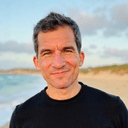Is sleeping just 4 hours per night the key to unlocking unparalleled productivity, or is it a direct ticket to burnout city? The concept of trimming down sleep to merely four hours has gained traction among high achievers and productivity enthusiasts who swear by its benefits. But before you set your alarm to challenge the conventional 8-hour sleep norm, let's dive into what science says and how technological aids like OneTask can support your quest for optimal efficiency and health.
The Myth of the Uber-Productive Sleeper
The allure of a 4-hour sleep cycle is undeniable. Imagine having 20 extra hours each week; that's almost an additional day of waking life to pursue work, hobbies, or personal projects. However, most sleep experts and research in chronobiology suggest that very few individuals can sustain such a restricted sleep schedule without experiencing significant adverse effects on health, mood, and cognitive function.
Short-Term Gains vs Long-Term Losses
In the short term, reducing sleep may seem like a win. You're awake more hours, yes, but at what cost?
- Decreased Cognitive Performance: Initial boosts in productivity can quickly be overshadowed by decreased alertness and impaired judgment.
- Mood Fluctuations: Emotional stability takes a hit, with increased irritability and stress levels.
- Compromised Immunity: Even your immune system may suffer, leaving you more susceptible to sickness.
In the long term, chronic sleep deprivation can lead to serious health conditions, including cardiovascular disease, obesity, diabetes, and even a shortened lifespan.
The 4-Hour Sleep Cycle: Understanding Polyphasic Sleep
Some individuals practice polyphasic sleep — a cycle that involves short naps spread out throughout the day instead of one long nighttime rest. Proponents argue it's possible to achieve full restorative benefits with these shorter periods. Yet, for most, transitioning to such a pattern is challenging and unsustainable without significant lifestyle changes.
Aiding Sleep and Productivity with AI
Using AI and productivity tools like OneTask can help you find a balance between rest and productivity, without sacrificing your health. Here's how:
- Personalized Task Management: OneTask helps you prioritize tasks based on urgency and importance, ensuring you're focusing on the right tasks at the right time.
- Intelligent Scheduling: Integrating your sleep schedule with OneTask could optimize your most productive hours, ensuring you work efficiently and preserve quality sleep time.
- Automated Reminders: Set reminders not just for meetings and deadlines, but for taking breaks and winding down before bed, promoting healthier sleep habits.
Making the Choice That's Right For You
If you're intrigued by the idea of sleeping less to do more, consider experimenting gradually and listen closely to your body's response. Remember, productivity isn't just about the hours you're awake; it's about how effectively you use them.
For more insights into balancing health and productivity, explore our other articles like the "5 Health-Boosting Tips for Freelancers and Remote Workers" at OneTask.
Ultimately, whether you're an advocate for the 4-hour sleep cycle or you cherish a solid 8-hour slumber, integrating AI tools like OneTask can enhance your productivity, ensuring you make the most out of every hour, awake or asleep.

